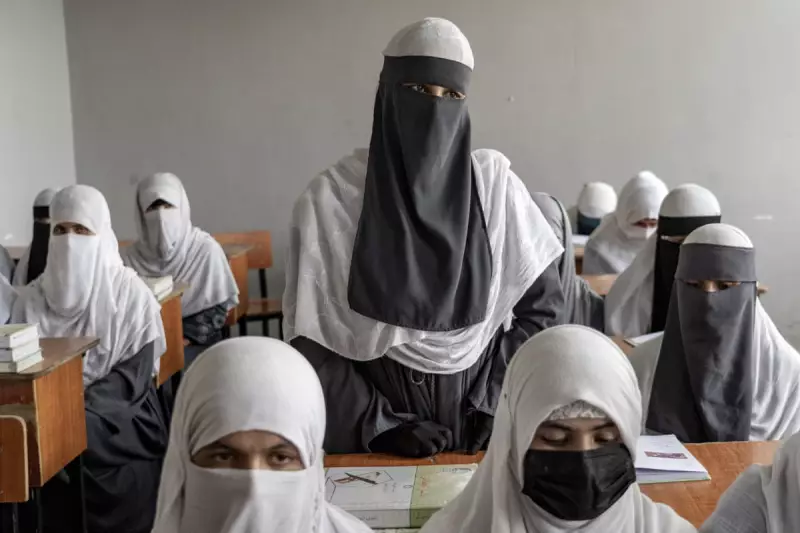
In a devastating blow to women's rights, the Taliban regime has effectively made religious madrasas the only educational option available to Afghan women and girls, according to alarming new findings. The systematic dismantling of secular education has created an unprecedented crisis for female learners across the country.
The Systematic Erosion of Women's Education
Since returning to power in 2021, the Taliban has implemented increasingly restrictive policies that have progressively eliminated educational opportunities for women. What began with secondary school closures has escalated into a complete ban on university education and most forms of secular learning for females.
The Guardian's investigation reveals how these policies have forced countless women and girls into religious schools as their only remaining educational pathway. While madrasas offer some form of learning, they provide an extremely narrow curriculum focused primarily on religious studies, drastically limiting women's future prospects.
Personal Stories of Educational Deprivation
Interviews with affected women paint a heartbreaking picture of abandoned dreams and limited alternatives. Many describe being forced to choose between religious education or no education at all—a devastating choice for those who once aspired to become doctors, engineers, or teachers.
One young woman from Kabul shared: "I had dreams of becoming a journalist, but now I study religious texts because it's the only thing allowed. They've taken our future and replaced it with what they think women should know."
International Response and Local Resistance
The international community has largely condemned these policies, with human rights organizations describing them as gender apartheid. However, limited leverage and competing global priorities have hampered effective intervention.
Within Afghanistan, small acts of resistance continue. Secret underground schools still operate in some areas, risking severe punishment to provide basic education. Meanwhile, some religious leaders have quietly expressed concern about the long-term consequences of an uneducated female population.
The Broader Impact on Afghan Society
Experts warn that denying women education will have catastrophic effects on Afghanistan's development and stability. The policy not only affects individual women but also impacts healthcare, economy, and social cohesion for generations to come.
As one education specialist noted: "When you prevent half your population from learning, you're not just harming women—you're crippling your entire country's future."
The situation represents one of the most severe educational crises globally, with an entire generation of Afghan women being systematically denied their fundamental right to learn and grow.





